Featured
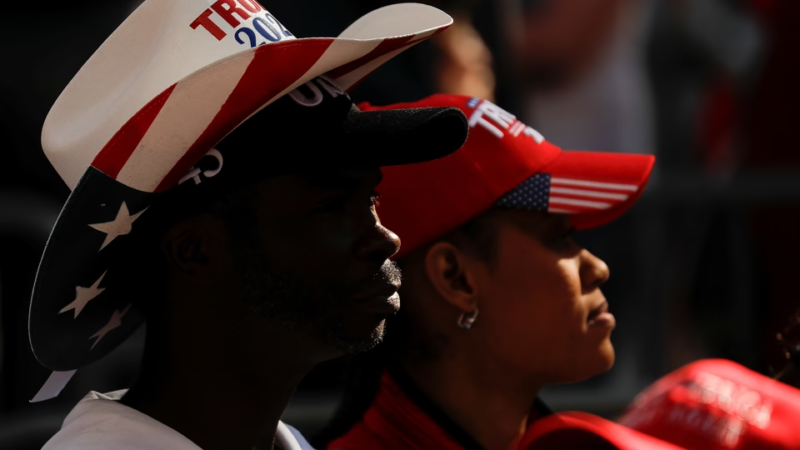 How Trump Is Dividing Minority Communities. By Ronald Brownstein / The Atlantic
How Trump Is Dividing Minority Communities. By Ronald Brownstein / The Atlantic
The most succinct explanation for how Republicans expect Donald Trump to win in November may have come from, of all people, the firebrand Representative Matt Gaetz of Florida. “What I can tell you,” Gaetz said earlier this year, “is for every Karen we lose, there’s a Julio and Jamal ready to sign up for the MAGA movement.”
Even most Democrats agree that Trump appears positioned to gain ground this year among Black and Latino men without a college degree—groups that already moved in his direction from 2016 to 2020, according to studies of the vote such as the analysis of the results released by Catalist, a Democratic voter-targeting firm. And even many Republicans acknowledge that Trump in 2024 could face an even bigger deficit among college-educated white women, who already voted against him in larger numbers in 2020 than in 2016, according to those same studies. Read more
Related: Can Joe Biden Keep the Black Vote? By Errol Lewis / New York Intelligencer
Related: March fundraising numbers show Biden significantly outpacing Trump. By Tamara Keith / NPR
Political / Social
 Biden Advisers Warn About Team Trump Focus On ‘Anti-White Racism.’ By Phillip Lewis / HuffPost
Biden Advisers Warn About Team Trump Focus On ‘Anti-White Racism.’ By Phillip Lewis / HuffPost
The campaign said the plans should serve as a “warning to Black America.” Stephen Miller / Image The Guardian
As Republican lawmakers continue to introduce bills that roll back diversity, equity and inclusion programs across the United States, advisers for President Joe Biden’s campaign are sounding the alarm that a Donald Trump victory in 2024 would only accelerate that process. Key Trump’s allies, led by former White House adviser Stephen Miller, are working to use civil rights-era laws to combat “anti-white racism,” and they’re targeting programs that provide economic opportunities for communities of color, DEI initiatives created as a result of 2020’s “racial reckoning,” and even sports leagues like the NFL, according to a report from Axios earlier this week. Read more
 Trump swindles his followers — again. By Dana Milbank / Wash Post
Trump swindles his followers — again. By Dana Milbank / Wash Post
Let’s say you’re an ardent supporter of Donald Trump and you decided to invest $100,000 of your retirement savings into Trump Media because your favorite former president says it’s a “highly successful” company.
 Yes, efforts to eliminate DEI programs are rooted in racism. Tatishe Nieta , et al / The Conversation
Yes, efforts to eliminate DEI programs are rooted in racism. Tatishe Nieta , et al / The Conversation
In the past year, a number of states have begun to dismantle their DEI programs.
Alabama, Utah, Texas and Florida have all passed and signed into law anti-DEI legislation ranging from prohibiting diversity training to terminating all positions associated with DEI efforts. Florida lawmakers have restricted the teaching of what they call racially “divisive” subject matter in public schools, colleges and universities. Legislatures in more than two dozen additional states are considering similar measures. Critics of these measures say they are racist. DEI opponents are quick to deny this. Is opposition to DEI programs unrelated to racism? Or does racism play an important role in opposition to DEI programs? Read more
Related: Map: The spreading impact of anti-DEI legislation. By Kiara Alfonseca / ABC News
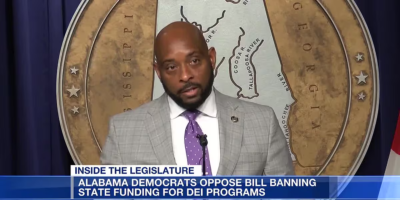 America Could Learn From Black Ala. Democrats’ Response To Anti-DEI Legislation. By
America Could Learn From Black Ala. Democrats’ Response To Anti-DEI Legislation. By
If diversity isn’t important to some Southern colleges and universities, maybe Black sports stars should play for schools that appreciate diversity, equity and inclusion.
Speaking on the Senate floor after the legislation was filed, Alabama state Sen. Rodger Smitherman (D) said: “You’re trying to destroy every black person in this state. You’re trying to destroy them. That’s what you’re doing. If you don’t think that this critical race theory bill doesn’t wipe us out as a race…it wipes us out. It wipes everything that has been accomplished by African-Americans or the avenues and the valleys that are open for them to have an opportunity in this state is wiped out.” Read more
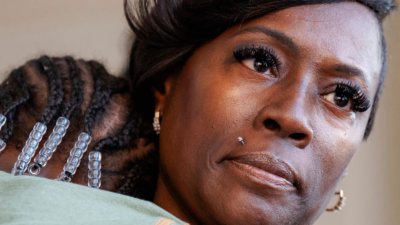 A Reversal Cannot Undo the Damage Caused by This Voting Fraud Case. By Gregory Nolan / NYT
A Reversal Cannot Undo the Damage Caused by This Voting Fraud Case. By Gregory Nolan / NYT
When a Texas appeals court reversed itself last week and acquitted Crystal Mason, a mother of three, in a voting fraud case, it ended almost a decade in which Ms. Mason lived in fear of being torn away from her family and imprisoned.
In 2018, she was sentenced to a five-year prison term for illegally casting a provisional ballot in the 2016 election. Though the prosecution of Ms. Mason ultimately failed, it still could chill people’s willingness to exercise their right to vote. Few would want to vote if it means going through what Ms. Mason did. As such, the reversal in her case cannot undo much of the damage that irresponsible Texas prosecutors wrought. Read more
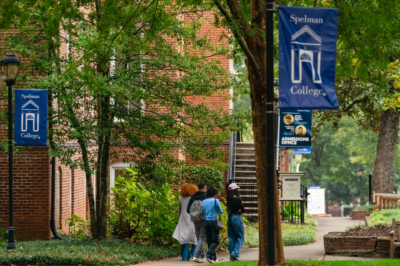 Donations To Spelman College Highlight Funding Disparities To HBCUs. By Lezli Baskerville / Black Enterprise
Donations To Spelman College Highlight Funding Disparities To HBCUs. By Lezli Baskerville / Black Enterprise
Endowments at Historically Black Colleges and Universities pale in comparison to those at the wealthiest U.S. colleges and universities
Yet, despite the reversal of fortune at some HBCUs, overall donations to these schools still pale in comparison to other top-tier institutions of higher learning – with HBCUs receiving 178 times less funding from foundations than the average Ivy League school in 2019 alone. Read more
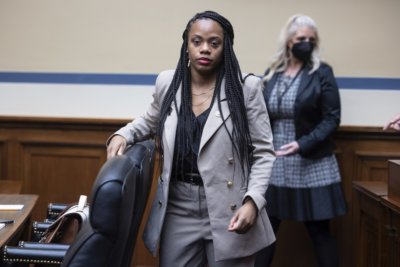 GOP megadonor funds super PAC targeting Summer Lee. By Madison Fernandez / Politico
GOP megadonor funds super PAC targeting Summer Lee. By Madison Fernandez / Politico
Republican megadonor Jeff Yass recently gave to a super PAC that is trying to topple a progressive incumbent in Pittsburgh.
The Moderate PAC, an outside group that aims to support centrist Democrats, has been boosting a primary challenge to Rep. Summer Lee, a member of “The Squad.” Lee and her supporters are quick to point out that Yass, a Pennsylvania businessperson, donated $1 million to the PAC in 2022, when it spent in support of Democratic Reps. Jared Golden of Maine and Don Davis of North Carolina. Read more
World News
 In crime-stricken Haiti, Catholic priests and nuns are targeted as kidnap victims. By Eduardo Campos Lima / Global Sisters Report
In crime-stricken Haiti, Catholic priests and nuns are targeted as kidnap victims. By Eduardo Campos Lima / Global Sisters Report
As criminal organizations extend their control over Haiti, kidnappings have continued to terrorize the country’s residents, with Catholic priests and other missionaries becoming some of the most common targets. In 2024 alone, at least 14 priests and religious brothers and sisters are being held.
Over the past three years, since President Jovenel Moïse was assassinated and criminal gangs began to take over the capital city, Port-au-Prince, kidnappers have focused on the country’s few higher-income professionals and those they believe will be able to secure large ransoms. In impoverished Haiti, that includes clergy and religious. Read more
 From the Horror to the Envy of Africa: Rwanda’s Ruler Holds Tight Grip.
From the Horror to the Envy of Africa: Rwanda’s Ruler Holds Tight Grip.
Thirty years after a devastating genocide, Rwanda has made impressive gains. But ethnic divisions persist under an iron-fisted president who has ruled for just as long. President Paul Kagame of Rwanda in 2021.
Blood coursed through the streets of Rwanda’s capital, Kigali, in April 1994 as machete-wielding militiamen began a campaign of genocide that killed as many as 800,000 people, one of the great horrors of the late 20th century. Thirty years later, Kigali is the envy of Africa. Smooth streets curl past gleaming towers that hold banks, luxury hotels and tech startups. There is a Volkswagen car plant and an mRNA vaccine facility. A 10,000-seat arena hosts Africa’s biggest basketball league and concerts by stars like Kendrick Lamar, the American rapper, who performed there in December. Read more
 How immigrants are helping boost the U.S. job market without affecting inflation. By Rob Wile / NBC News
How immigrants are helping boost the U.S. job market without affecting inflation. By Rob Wile / NBC News
Economists increasingly believe the post-pandemic surge in immigration is a key reason the economy has continued to grow.
Immigration now ranks as the most volatile domestic issue facing President Joe Biden, with Gallup survey respondents ranking it as the country’s “most important problem,” the first time it has held that position since 2019. Republicans have called on Biden to take extreme measures to stem the entry of migrants, while former President Donald Trump has referred to them as “not humans” and “animals.” Read more
Historical / Cultural
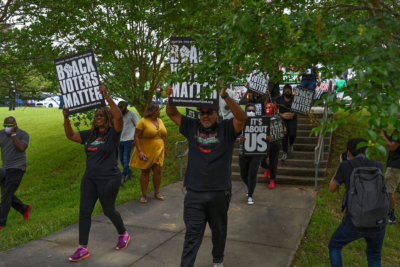 How Mississippi’s Jim Crow Laws Still Haunt Black Voters Today. By Daja E. Henry / The Marshall Project
How Mississippi’s Jim Crow Laws Still Haunt Black Voters Today. By Daja E. Henry / The Marshall Project
A group of demonstrators march in Jackson, Miss., on June 19, 2021, in protest of new voting access restrictions in Black Belt states. Members of Black Voters Matter took part in a Freedom Ride bus tour to Washington, D.C., to advocate for voting rights.
Although most other racist sections of Mississippi’s 1890 constitution were erased by the Civil Rights Movement of the 1960s, one part of the plan continues to stalk Black voters today. Called felony disenfranchisement, the constitution takes away — for life — the right to vote upon conviction for several low-level crimes, like theft and bribery, that the 1890 drafters felt would be mostly committed by Black people. Read more
 Uncovering The Black City Buried Under Lake Lanier. By Bilal G. Morris / Newsone
Uncovering The Black City Buried Under Lake Lanier. By Bilal G. Morris / Newsone
There’s a city buried under Lake Lanier (Georgia’s biggest lake), and submerged with it is a secret: An American horror story filled with terror, death, genocide, and ghosts.
Settled along the Chattahoochee waters, Oscarville was home to roughly 1,100 black folks, most of whom were freed after fighting in the American Civil War. Many worked as hands in the cotton fields or performed odd jobs for white residents in the surrounding neighborhoods. They managed to make a decent living for themselves, creating a healthy community with churches, schools, and small businesses. It was clear that in the early 1900s, blacks in Atlanta lived in constant fear of violence. For the small town of Oscarville, that fear would turn into a brutal reality. Read more
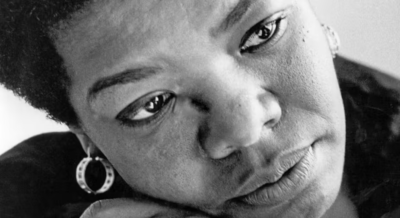 Maya Angelou’s newly uncovered writing from Egypt and Ghana reveals a more radical side to her career. By Alex White / The Conversation
Maya Angelou’s newly uncovered writing from Egypt and Ghana reveals a more radical side to her career. By Alex White / The Conversation
Frustrated by American racism and fascinated by African decolonisation, she moved to Egypt in 1961 and then Ghana in 1963. In both countries, she found work as a journalist within the state-controlled media.
While Angelou’s memoirs give few details about this political work, I’ve spent the last three years tracking down surviving copies of her writing from Egypt and Ghana. These newly uncovered texts demonstrate Angelou’s efforts to link the struggle for civil rights in the US to global campaigns against racism and imperialism. Read more
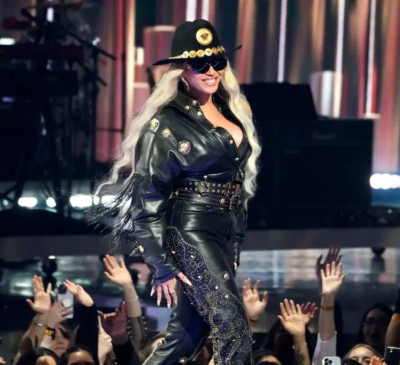 Beyoncé Asks, and Answers, a Crucial Question in Her Latest Album.
Beyoncé Asks, and Answers, a Crucial Question in Her Latest Album.
Beyoncé released a genre-bending country album, “Cowboy Carter,” last week. After listening to it in all the requisite settings — on a walk, in a car and on a plane — I finally understand what Beyoncé, a notoriously enigmatic pop star, wants to say to the world. She wants to be more than popular. She wants to be legendary. But first, she isn’t through taking everyone who has doubted her to the woodshed.
In outlaw country tradition, “Cowboy Carter” settles scores with haters and with history. Beyoncé has trilled, growled, marched, stepped, sweated and sung her heart out for almost 30 years. It is, this album argues, in conjunction with the others in her in-progress three-act “Renaissance” oeuvre, time for a little respect, for Black artists generally but also for her specifically. Read more
 From “Shogun” to “Dune,” Hollywood is now discrediting the white savior. By Kelly Pau / Salon
From “Shogun” to “Dune,” Hollywood is now discrediting the white savior. By Kelly Pau / Salon
Reflecting our own world, losing trust in those who traditionally lead is causing points to a possible reckoning. Anna Sawai as Toda Mariko and Cosmo Jarvis as John Blackthorne in “Shogun” (Katie Yu/FX)
In the second episode of FX’s limited series “Shōgun,” English sailor John Blackthorne (Cosmo Jarvis) is ordered to kneel and, at the behest of a Japanese lord (Tadanobu Asano), repeats “I am a dog.” The silly line, delivered at the height of a serious moment, is comedic, but it is also powerful: here is a white man, who had ambitions of establishing a Western foothold in Japan, instead at their mercy and forced to abase himself. It’s not something you see every day in Hollywood. Read more
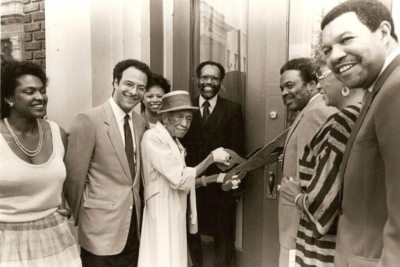 Daniel A. Moore, Founder of an African American Museum, Dies at 88. By Adam Nossiter / NYT
Daniel A. Moore, Founder of an African American Museum, Dies at 88. By Adam Nossiter / NYT
Mr. Moore, in dark suit at center, during a ribbon-cutting ceremony in 1984 marking his APEX Museum’s move to a renovated building on Auburn Avenue in Atlanta. Holding the ceremonial scissors was Kathleen Redding Adams (1890-1993), a schoolteacher who lived on Auburn and who survived a 1906 riot in Atlanta in which white mobs killed dozens of Black residents.Credit…APEX Museum
Mr. Moore started his eclectic collection of artifacts in 1978 and in 1984 moved it to a handsome 1910 brick building on Auburn Avenue, known as “Sweet Auburn” for its centrality to African American history. The building, which had been a schoolbook depository and a tire warehouse, was “erected brick by brick by African American masons,” the museum says. Read more
Sports
 Report Shows that Black Female Student-Athletes Face Lack of Diverse Support. By Lois Elfman / Diverse Issues In Higher Ed.
Report Shows that Black Female Student-Athletes Face Lack of Diverse Support. By Lois Elfman / Diverse Issues In Higher Ed.
While players in the NCAA Tournament were diverse, head coaches and administrators lagged far behind.
That’s the conclusions from the new report, “Racial and Gender Equity for Black Women Student-Athletes,” authored by Dr. Shaun R. Harper, founder and executive director of the University of Southern California Race and Equity Center. Harper depicts each team in the Sweet 16 of the NCAA Division I Women’s Basketball Tournament. The head coach is also shown, and demographic data on the university is provided. Read more
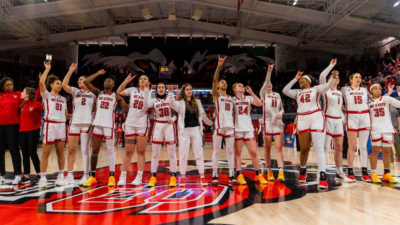 NC State teams reflect progress that anti-DEI efforts would reverse. By Ned Barnett / News Observer
NC State teams reflect progress that anti-DEI efforts would reverse. By Ned Barnett / News Observer
Amid N.C. State’s thrilling double run to the NCAA Final Four, it’s striking to remember that not so long ago college teams looked much different – many were all-white until the mid-1960s.
And it’s notable that the NCAA women’s Final Four is expected to draw record TV audience .and ticket prices will exceed those for the men’s games. Much of that is because of Iowa’s Caitlin Clark, but it’s also the long-term result of federal legislation that gave female college athletes the right to equal opportunity in sports. That history is worth keeping in mind as Republican leaders in North Carolina set their sights on dismantling diversity, equity and inclusion (DEI) programs within the University of North Carolina System. Read more
 At the women’s Final Four, an international flavor is no accident. By Kareem Copeland / Wash Post
At the women’s Final Four, an international flavor is no accident. By Kareem Copeland / Wash Post
Canada native Aaliyah Edwards has been a standout for Connecticut, which faces Iowa in the FInal Four on Friday night in Cleveland. (Steph Chambers/Getty Images)
Those showcase events, along with programs such as the NBA Academy and Basketball Without Borders, are part of outreach efforts by the NBA and WNBA to make the college game more international. Results are evident with a quick scan of tournament rosters: Edwards, teammate Nika Mühl (Croatia) and South Carolina center Kamilla Cardoso (Brazil) are all playing this weekend, while Gonzaga forward Yvonne Ejim (Canada) and Virginia Tech guard Georgia Amoore (Australia) played earlier in the tournament. Read more
 Bronny James declares for NBA draft but keeps his college options open. By Ben Golliver / Wash Post
Bronny James declares for NBA draft but keeps his college options open. By Ben Golliver / Wash Post
Bronny James, the 19-year-old son of Los Angeles Lakers star LeBron James, announced Friday his intention of entering both the NBA draft and the NCAA transfer portal after a challenging freshman season at the University of Southern California, effectively deferring a decision on his future by keeping multiple paths open.
“I’ve had a year with some ups and downs but all added to growth for me as a man, student and athlete,” James wrote. “I’ve made the decision to enter the NBA Draft while maintaining my college eligibility, and will also be entering the NCAA transfer portal. Thank you to USC for an amazing freshman year, and as always thankful for my family, friends, doctors, athletic trainers and fans for their support.” Read more
 Gabby Thomas: The U.S. track star with a bigger goal beyond Olympic medals. By Matthew Futterman / The Athletic
Gabby Thomas: The U.S. track star with a bigger goal beyond Olympic medals. By Matthew Futterman / The Athletic
Pretty much everything Thomas has accomplished in track, the two Olympic medals in Tokyo in 2021, the silver medal in the 200 meters and the gold medal in the 4×100-meter relay at the world championships last year in Budapest, is a little bit of a blur.
She has an undergraduate degree in neurobiology from Harvard, where she also studied global health and policy, plus a master’s degree in public health and epidemiology from the University of Texas. The running stuff was supposed to be long over by now. Halfway through college, she didn’t even know professional running was a thing. She thought her heroes, women like Allyson Felix and Sanya Richards-Ross, sort of disappeared for three years between Olympic Games. Read more
Site Information
Articles appearing in the Digest are archived on our home page. And at the top of this page register your email to receive notification of new editions of Race Inquiry Digest.
Click here for earlier Digests. The site is searchable by name or topic. See “search” at the top of this page.
About Race Inquiry and Race Inquiry Digest. The Digest is published on Mondays and Thursdays.
Use the customized buttons below to share the Digest in an email, or post to your Facebook, Linkedin or Twitter accounts.